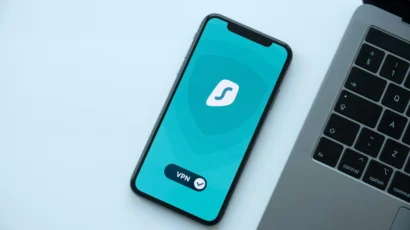Disclosure: Privacy Australia is community-supported. We may earn a commission when you buy a VPN through one of our links. Learn more.
Can VPNs be considered illegal under the RESTRICT Act?
The use of virtual private networks (VPNs) and other technologies that get around restrictions on software is another source of rising worry among internet users, as a new TikTok ban enters public discussions.
The new purported law’s designers have denied any wrongdoing, insisting that the maximum prison sentence of 20 years would never be imposed on an average person.
However, this seems to be a weary step towards something that could contravene privacy and individual rights given by legislation like the EU’s General Data Protection Regulation, or GDPR.
Changes that are reportedly soon to come
It has been reported that the CEO of TikTok will soon make a commitment to safeguard the safety of the app’s users in the United States, likely widening this out to other countries like the UK.
Senator Warner emphasised that the bill’s target audience is corporations like Kaspersky, Huawei, and TikTok that pose systemic threats to U.S. national security rather than individual individuals.
However, due to the bill’s vague wording, this situation is still possible.
According to EFF’s analysis, the Act gives the Department of Commerce the authority to take “mitigation measures” (without specifying what those measures would be) and to penalize those who “evade” them.
While the present administration has said it has no interest in pursuing consumers, loopholes left by these imprecise definitions might be used in the future.
The Electronic Frontier Foundation (EFF) argued that Congress should make this punishment wording stricter to ensure that no one may be prosecuted for using an app.
Online rights at risk
The RESTRICT Act has been criticised on the grounds that it might endanger the digital liberties of all Americans.
To begin, the Bill’s Section 12 prevents MPs from explaining their decision-making process. The public would have no idea whether there are valid grounds to prohibit applications like TikTok. As a result, it will be impossible to question government actions, which is essential for any democracy.
Citizens’ right to free speech will be limited, and internet censorship will be heightened, as the US government gains additional authority to determine whether a foreign technology may function on US land.
Experts say that this not only undermines people’s rights but also makes it harder for the United States to denounce such actions by its opponents abroad.
The Electronic Frontier Foundation argued that unfettered access to information—even if it comes from your enemy—is fundamental to a functioning democracy (Tools to Protect Your Privacy Online).
Conclusion: So, now what?
While the RESTRICT Act was established with the intention of improving upon the current “whack-a-mole” approach to dealing with potentially disruptive new technology, it has instead garnered a great deal of criticism in its short time on the books.
In addition to the aforementioned problems impacting the general population of the United States, several observers have voiced worry about the practicalities of implementing such regulations in the present-day IT industry.
Even the greatest American corporations, like Apple, have operations abroad in places like China, the United States’ No. 1 adversary.
The Act is now making its way through Congress, but it has yet to pass the Senate and reach President Biden’s desk. However, many people think that the actual focus should be on enacting strict data privacy regulations like the ADPPA.
In addition, the EFF urged citizens to contact their representatives in opposition to the bill, arguing that if Congress is truly worried about foreign powers using and collecting our data, it should prioritise detailed data privacy laws to protect data regardless of the platform on which it is stored.
If social media platforms are not authorised to gather, store, or sell user data, then our data will be safe from foreign foes.





